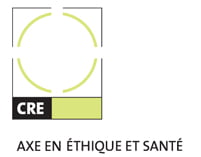
« Can neuroscience enhance our moral sense? »
Dans le cadre des ateliers de la bioéthique, l’axe Éthique et santé du CRÉ recevait Veljko Dubljević (IRCM & McGill University) offrait une présentation (en anglais) intitulée « Can neuroscience enhance our moral sense? A critical analysis of the moral enhancement debate based on integrative cognitive neuroscience models of moral judgment ». La vidéo de l’événement est maintenant disponible!
Résumé :
A debate has surfaced regarding whether different forms of neuroscience interventions (e.g., pharmacological, neuro-stimulation, genetic) could lead to “moral enhancement”, i.e., make humans more moral. This presentation will focus on reviewing available evidence on neuro-technologies that could serve as tools of ‘moral enhancement’. Furthermore, it will discuss models of moral judgment and their implications for the specific target of intervention (cognition, volition or affect) in ‘moral enhancement’.
Bio:
Veljko Dubljevic Ph.D.,D.Phil., is a Banting Postdoctoral Fellow in the Neuroethics research unit at IRCM and McGill University in Montreal. He obtained a PhD in political science (University of Belgrade), and after studying bioethics, philosophy and neuroscience (University of Tübingen), he obtained a doctorate in philosophy (University of Stuttgart). His primary research focuses on ethics of neuroscience and technology, and neuroscience of ethics. He has over 30 publications in moral, legal and political philosophy and in neuroethics. He is also engaged in the activities of the International Neuroethics Society and serves as a member of it’s Communications Committee. He is editing a volume (together with Fabrice Jotterand) ‘Cognitive Enhancement: Ethical and Policy Implications in International Perspectives’ (In Press, Oxford University Press). Finally, he is currently the managing editor and inaugural co-editor of the Springer Book Series ‘Advances in Neuroethics’ (http://www.springer.com/series/14360)



